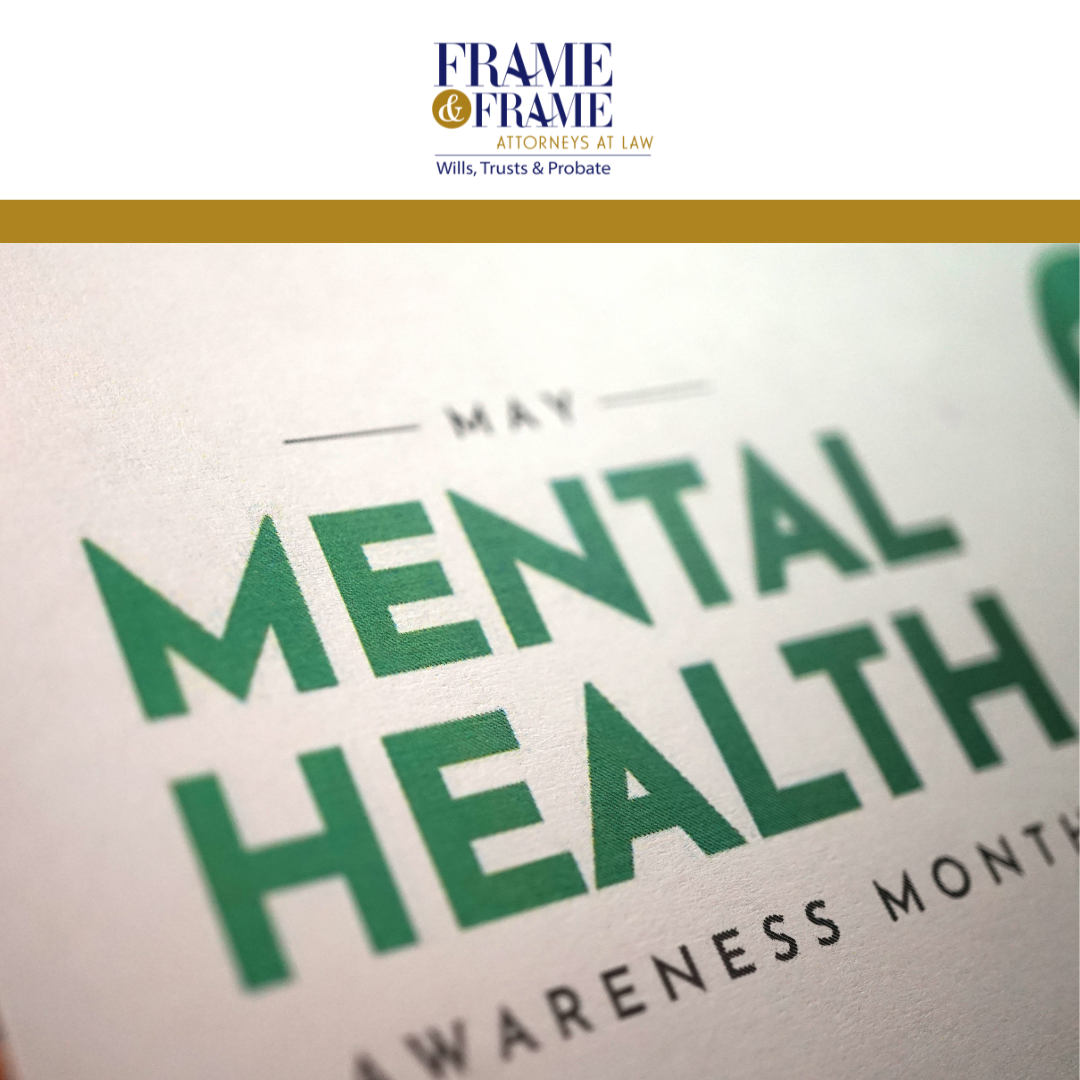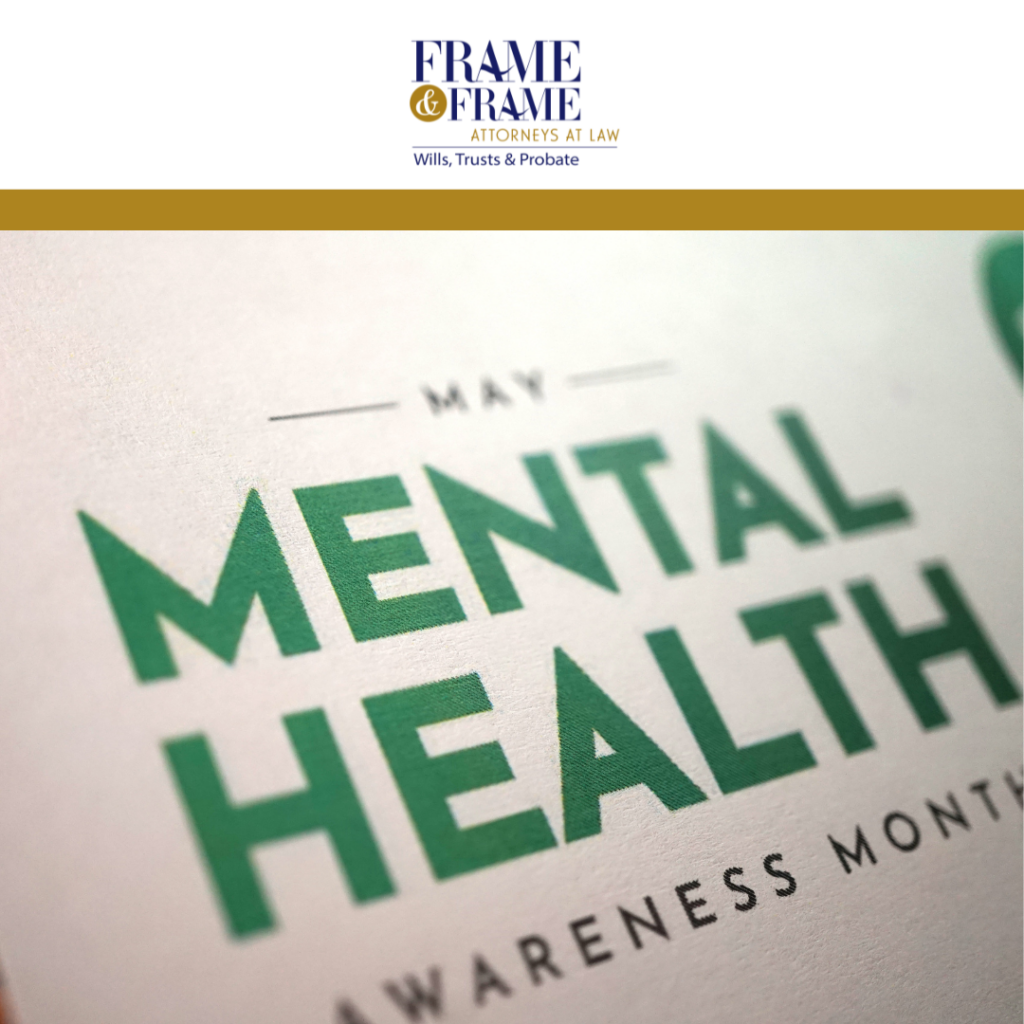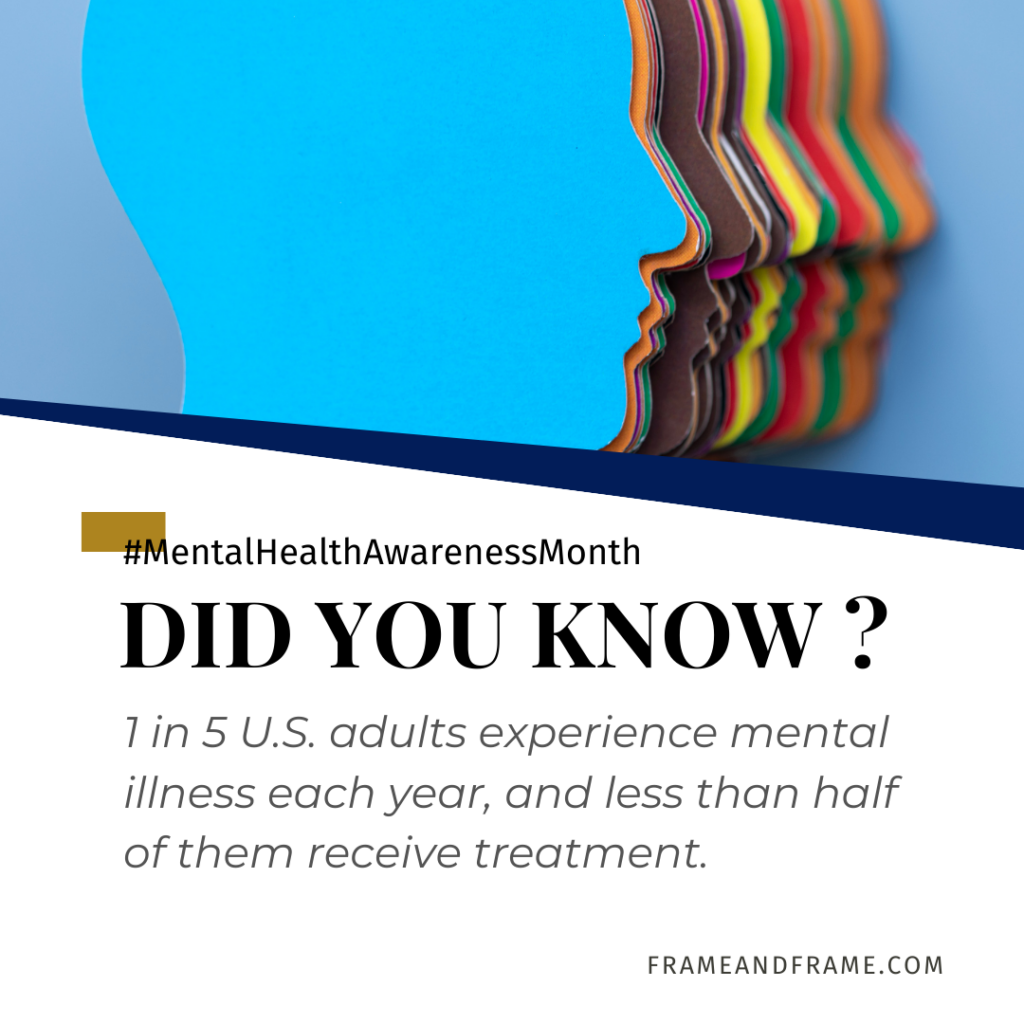
Celebrating Mental Health Awareness Month
May is Mental Health Awareness Month!
We are making it our mission to raise awareness about mental health issues, promote mental wellness, and reduce stigma surrounding mental illness. It is an opportunity to educate the public, advocate for mental health policies and resources, and encourage individuals to seek help if needed. Mental health awareness is a vital societal imperative, fostering empathy, understanding, and support for individuals facing mental health challenges while promoting acceptance, destigmatization, and access to resources for all.
During Mental Health Awareness Month, various events, campaigns, and educational activities are organized to increase understanding of mental health issues, provide support to those affected by mental illness, and promote overall mental well-being.
Mental Health Awareness Month was established in 1949 to increase awareness of the importance of mental health and wellness in Americans’ lives and to celebrate recovery from mental illness. For the past 20 years, the Substance Abuse and Mental Health Services Administration (SAMHSA) has recognized Mental Health Awareness Month (MHAM) every May to increase awareness about the vital role mental health plays in our overall health and well-being.
Click here to learn more about how you can participate and spread awareness!
Here are some tips for Mental Health Self-Care
- Prioritize Sleep: Ensure you get enough rest each night by maintaining a consistent sleep schedule and creating a relaxing bedtime routine, which can include activities like reading, meditation, or gentle stretching.
- Move Your Body: Engage in regular physical activity that you enjoy, whether it’s going for a walk, practicing yoga, dancing, or participating in sports, as exercise can boost mood, reduce anxiety, and improve overall mental well-being.
- Connect with Others: Cultivate supportive relationships with friends, family, or community members by reaching out for social interactions, whether in person or virtually, as human connection can provide comfort, encouragement, and a sense of belonging.
- Set Boundaries: Establish healthy boundaries in your personal and professional life to protect your time, energy, and emotional well-being, allowing yourself to say no when necessary and prioritize activities that replenish your spirit.
- Engage in Hobbies: Dedicate time to activities that bring you joy and fulfillment, whether it’s painting, gardening, playing music, cooking, or any other creative pursuit, as hobbies can provide a sense of purpose and satisfaction.
- Seek Support: Don’t hesitate to reach out for professional help if you’re struggling with your mental health, whether it’s through therapy, counseling, or support groups, as seeking support is a sign of strength and can provide valuable insights and coping strategies.
- Practice Gratitude: Cultivate a mindset of gratitude by regularly reflecting on the things you’re thankful for, whether big or small, and expressing appreciation for the positive aspects of your life, which can help shift your focus from negativity to positivity.
- Be Kind to Yourself: Practice self-compassion and treat yourself with kindness and understanding, recognizing that it’s okay to have bad days and imperfections, and making self-care a priority in your life, as you deserve love, care, and acceptance from yourself.
This month, prioritize self-care and take time to recharge. Your mental health is important and seeking support when you need it is vital. Call, chat, or text 988 for free, confidential, judgment-free support 24/7.
Let’s fight stigma, provide support, educate the public and advocate for policies that support the millions of people in the U.S. affected by mental illness. Click here to learn more about how you can get involved.
Mental health and estate planning are intricately linked aspects of preparing for the future, each playing a vital role in safeguarding one’s well-being and assets. While estate planning traditionally focuses on the distribution of assets and the designation of beneficiaries, considering mental health within this framework is increasingly recognized as essential for comprehensive planning.
Incorporating mental health considerations into estate planning is not only prudent but also compassionate, offering support and protection for individuals facing mental health challenges. By addressing these issues proactively, individuals can ensure that their wishes are respected, their assets are protected, and their well-being is prioritized, even in the face of mental health challenges.
Frame & Frame Attorneys at Law has offices in Annapolis, Pasadena, Frederick, and Stevensville, Maryland. Contact us today to schedule an appointment with an estate planning attorney at Frame & Frame.



